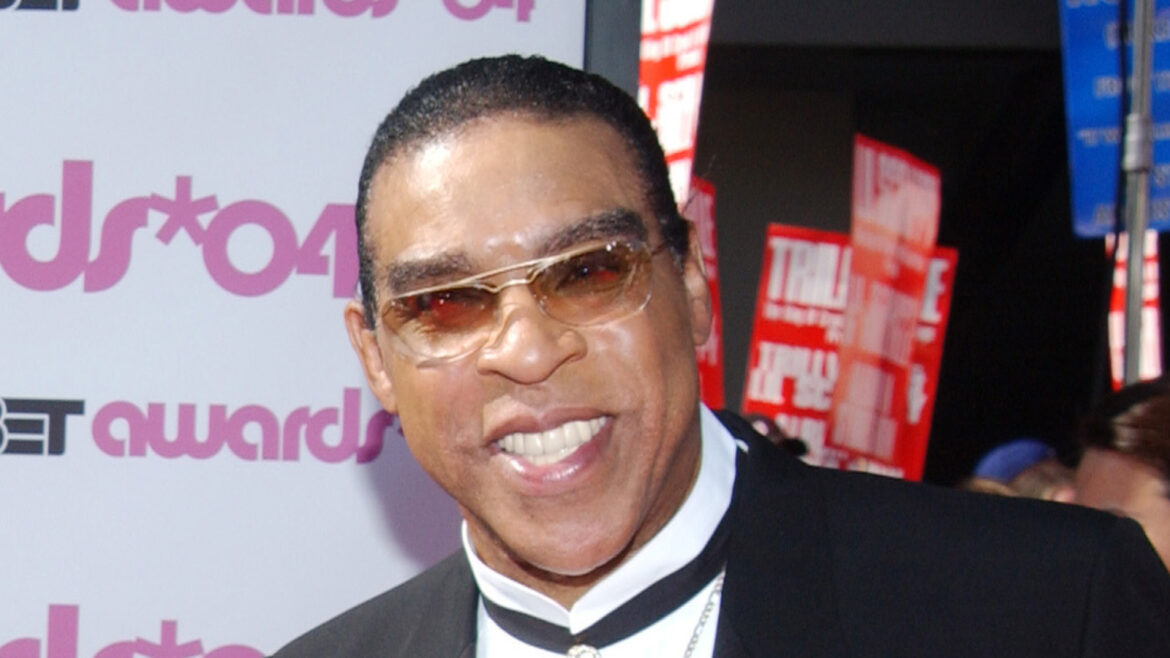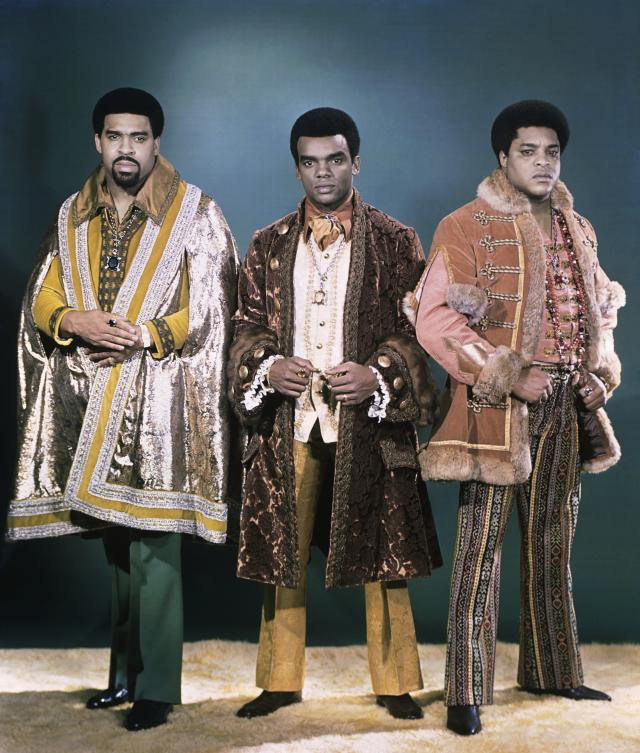
Rudolph Isley: The Unsung Pioneer of Rhythm and Soul
Rudolph Bernard Isley (April 1, 1939 – October 11, 2023) was an American singer-songwriter and one of the founding members of The Isley Brothers.
Rudolph Isley, was often overshadowed by his more famous younger brothers, Ronald and O’Kelly, and was a figure whose contributions to the world of music have been largely underestimated. Born on April 1, 1939, in Cincinnati, Ohio, Rudolph Isley played an integral role in shaping the landscape of rhythm and soul music, both as a member of the legendary Isley Brothers and as a songwriter and producer.
Rudolph Isley grew up in a household filled with music and creativity. He, along with his siblings, was heavily influenced by their father, O’Kelly Isley Sr., a professional singer, and their mother, Sally Isley, who encouraged their musical pursuits. From an early age, Rudolph, Ronald, and O’Kelly displayed an innate talent for harmonizing and singing. This natural ability formed the foundation of the Isley Brothers’ remarkable vocal harmonies that would captivate audiences for generations to come.
In the late 1950s, the Isley Brothers, consisting of Rudolph, Ronald, O’Kelly, and two other members, formed a vocal group that initially specialized in gospel music. Their unique blend of gospel, doo-wop, and R&B quickly caught the attention of local audiences. By 1957, they had transitioned to the secular music world, and their first single, “Shout,” became a massive hit, defining their career trajectory.
.
.
Rudolph Isley’s deep baritone voice provided a rich foundation for the Isley Brothers’ harmonies. While Ronald Isley’s tenor and O’Kelly’s falsetto were more prominent, Rudolph’s contribution was essential in achieving their distinctive sound. The trio’s vocal dynamics allowed them to explore a wide range of emotions and styles, making them versatile artists who could tackle anything from rock ‘n’ roll to smooth ballads.
Although Rudolph largely sang harmonies with the band, he took lead vocals on such tracks as I’ve Got to Get Myself Together and It’s a Disco Night (Rock Don’t Stop).
.
.
One of the hallmarks of the Isley Brothers’ career is their longevity in the music industry. While most acts have a limited period of success, the Isley Brothers enjoyed an astonishingly long career spanning several decades. Rudolph Isley’s commitment to his craft and his dedication to the group’s vision played a crucial role in their enduring success. He was not just a performer but also a consummate songwriter, helping to create many of their hits.
Rudolph’s songwriting talents emerged early on, and he co-wrote some of the Isley Brothers’ most iconic songs. One of his most significant contributions was the 1964 hit “This Old Heart of Mine (Is Weak for You),” which became an R&B classic. The song’s soulful melody and heartfelt lyrics perfectly showcased Rudolph’s songwriting abilities, cementing his status as a gifted tunesmith. His songwriting prowess was a key factor in the Isley Brothers’ ability to evolve with the changing musical landscape over the years.
Beyond his contributions to the group’s music, Rudolph Isley was also involved in producing and arranging their songs. His meticulous attention to detail and musical acumen were invaluable in crafting the Isley Brothers’ signature sound. He was instrumental in shaping the group’s recordings, ensuring that every track was a masterpiece of vocal harmony and instrumental arrangement.
Rudolph’s influence extended beyond the Isley Brothers’ discography. He and his brothers were not only pioneers of soul music but also advocates for social change. In the 1960s, their music became a powerful tool for addressing important social issues, such as civil rights and racial inequality. Songs like “Fight the Power” and “Harvest for the World” conveyed messages of empowerment and unity. Rudolph Isley, like his brothers, used their platform to shed light on pressing social concerns.
.

.
The Isley Brothers‘ ability to stay relevant in an ever-changing music industry is a testament to their adaptability and creativity. Rudolph Isley’s contributions to the group’s musical evolution are often overlooked. While many artists fade into obscurity, the Isley Brothers continued to release chart-topping hits throughout the 1970s, 1980s, and beyond, thanks in no small part to Rudolph’s dedication to pushing the boundaries of their sound.
One of the most defining aspects of the Isley Brothers’ career is their remarkable ability to bridge generational gaps. Their music has a timeless quality, appealing to both older listeners who grew up with their early hits and younger audiences who discovered their music through sampling and cover versions. Rudolph Isley’s vocal prowess and songwriting excellence contributed significantly to this enduring appeal.
The Isley Brothers’ influence on other artists and genres cannot be understated. Their music has been sampled by countless hip-hop and R&B artists, reaffirming their status as musical legends. Their track “Between the Sheets” has been sampled by artists like The Notorious B.I.G., Aaliyah, and Kendrick Lamar, among many others. These samples serve as a testament to the enduring relevance of the Isley Brothers’ music.
While Rudolph Isley’s contributions to the Isley Brothers’ legacy are undeniable, he remained a modest and unassuming figure in the public eye. His reserved nature contrasts with the larger-than-life personas often associated with iconic musicians. Yet, this very humility is part of what makes Rudolph Isley such a special and revered figure in the world of music.
In addition to his musical talents, Rudolph Isley’s life has been marked by his unwavering dedication to family. The Isley Brothers were more than just a band; they were a tight-knit family unit. This familial bond provided the foundation for their music and success, and it was Rudolph who often served as the peacemaker, ensuring that family harmony translated into musical harmony.
Rudolph’s impact on the Isley Brothers’ live performances was equally significant. His commanding stage presence, even as he took on a more background role compared to his younger brothers, was a crucial part of their electrifying live shows. His deep, resonant voice added a layer of depth to their performances, leaving audiences in awe of their talent.
In 1984, the Isley Brothers were inducted into the Rock and Roll Hall of Fame, recognizing their immense influence on the world of music. While this honor rightly celebrated their collective achievements, it is essential to acknowledge Rudolph Isley’s vital role in this legendary group. He, along with his brothers, has left an indelible mark on the music industry.
As the years passed, the Isley Brothers continued to create music that resonated with audiences across the globe. Their songs remained timeless, and their performances continued to draw in fans, old and new. Rudolph Isley’s contributions never wavered, and his enduring presence in the music world remained a symbol of the group’s incredible longevity.
In recent years, as the Isley Brothers celebrated their 60th anniversary in the music industry, it became increasingly clear that Rudolph’s influence was not confined to their past glory but continued to shape their present and future. The group released new music and embarked on tours, captivating audiences with their ageless harmonies and spirited performances.
Rudolph Isley was an embodiment of dedication, resilience, and the power of family bonds in the music industry. His journey from a young boy harmonizing with his brothers in their Cincinnati home to becoming a pivotal figure in the history of rhythm and soul music is an inspirational tale. His story highlights the importance of humility, perseverance, and a passion for music that transcends generations.
In conclusion, Rudolph Isley was an unsung pioneer of rhythm and soul, a man whose contributions to the world of music are deserving of more recognition. His distinctive baritone voice, songwriting talents, and dedication to the Isley Brothers’ vision were instrumental in shaping the group’s legendary career. His ability to bridge generational gaps with timeless music and his commitment to addressing important social issues through his art further demonstrated his significance in the music industry. Rudolph Isley’s enduring impact on music is a testament to the power of family, humility, and the ability to create music that transcends time and boundaries.
Rudolph Isley died from an apparent heart attack at his home on October 11, 2023, at the age of 84.
Check out The Isley Brothers on Amazon
Check out Rudolph Isley on Amazon
If you liked this article, please share it with your friends and family, and why not check out some other Musicians who died in 2023.
.


Pingback: Chris Jasper died on February 23, 2025 - Dead Musicians